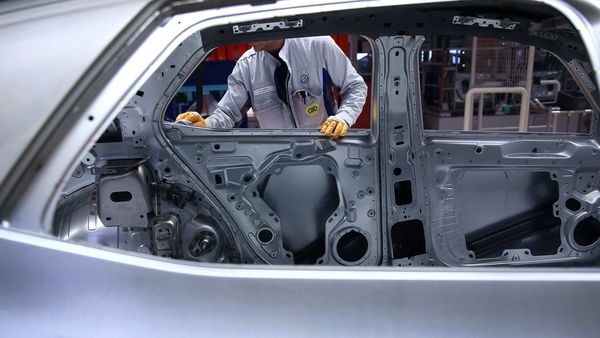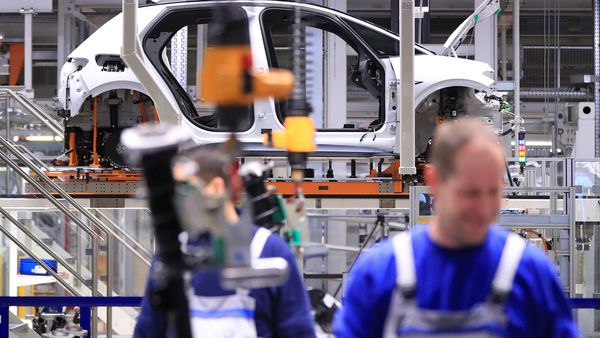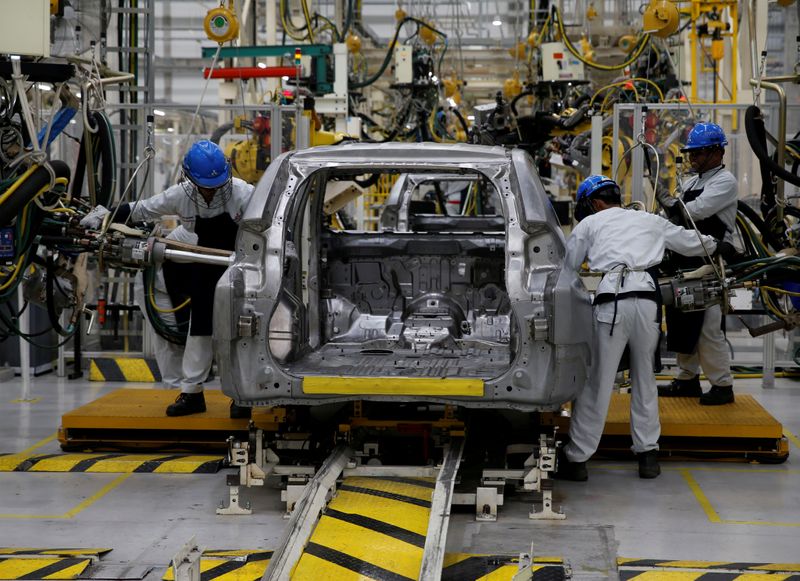Auto component makers likely to remain subdued in September quarter: Icra


The performance of auto component makers is expected to remain subdued in the September quarter this fiscal over the year-ago period, but may witness significant improvement on a sequential basis, rating agency Icra said on Thursday.
For 2020-21, it expects the revenue of auto ancillaries, except tyre segment, to drop by 16-20 per cent following the double-digit decline during FY2020.
Tyre manufacturers, according to the release, are expected to perform better, with revenue decline likely to be in the high single-digit.
Also check these Vehicles
The auto component industry was already impacted by muted demand in FY2020, with the industry witnessing 16 months of decline in volumes pre-Covid and was aggravated following the pandemic, the release said.
Also Read : Passenger vehicle retail sales rise 10% in September: FADA
However, going forward, the industry is expected to register strong growth in FY2022, which will result in improved profitability and coverage indicators for most vendors, Icra said.
According to the rating agency, during the period FY 2014-19, most auto ancillaries have ploughed back their accruals to deleverage their balance sheet.
Icra also said that 28 per cent of its rated auto component portfolio had availed moratorium, and the need for restructuring will be limited despite eligibility.
"ICRA Ratings has indicated that about 28 per cent of its auto component portfolio has availed of the moratorium. Of this, 72 per cent of the entities that availed moratorium are rated in the investment-grade (BBB category and above). They have availed moratorium primarily to conserve cash in an uncertain environment," Icra said.


The Reserve Bank of India (RBI) allowed corporates to avail moratorium on debt servicing from their lenders, thereby providing immediate liquidity relief following Covid-19 pandemic.
This was done across two phases, covering the period March to August 2020. Subsequently, the RBI has allowed corporates to avail loan restructuring for a period of up to two years, restricted only to the Covid-19 pandemic related liquidity issues, based on guidance given by an expert committee.
Accordingly, only those borrowers which were classified as standard and with arrears of less than 30 days as on March 1, 2020, are eligible under the framework.
Also Read : Nitin Gadkari asks auto and components industry to discourage imports
"The guidance allows lenders to approve the resolution framework for such entities provided that supported by the restructuring and following improvement in performance, the borrowers meet the five sector-specific thresholds by March 31, 2022," said Subrata Ray, Senior Group Vice President, Icra.
Additionally, lenders are expected to ensure compliance to Total Outside Liabilities/adjusted Tangible Net Worth threshold at the time of implementation itself, he added.
"Our analysis suggests that about 80 per cent of the ICRA rated auto component companies that availed the moratorium would be eligible for restructuring.


"However, most entities will not take recourse to the restructuring process. A large share of these rated investment-grade auto component suppliers would be higher up the value chain and relatively larger entities; hence the need for restructuring will be limited, despite eligibility," Ray said.
Also Read : Auto component sector revenue may fall by 14-18% in FY21: Report
Icra noted that with the sequential pick-up in production across all automotive segments (except for commercial vehicles) supported by pent-up demand and channel filling and the gradual opening of export markets, capacity utilisation for most auto component players has been close to pre-Covid levels (at 60-65 per cent in September 2020).
The rating agency also said it expects accruals to improve significantly in FY2022 and believes that the proportion of entities opting for restructuring would be relatively low and largely restricted to the smaller players.
While the auto component production restarted in phase-2 of the lockdown, players were operating at sub-optimal capacity utilisation for the most part of Q1 FY2021, it said, adding capacity utilisation was hovering at sub 30 per cent for May and June 2020.








 40 kWh
40 kWh 150 Km
150 Km



 998 cc
998 cc Petrol
Petrol











